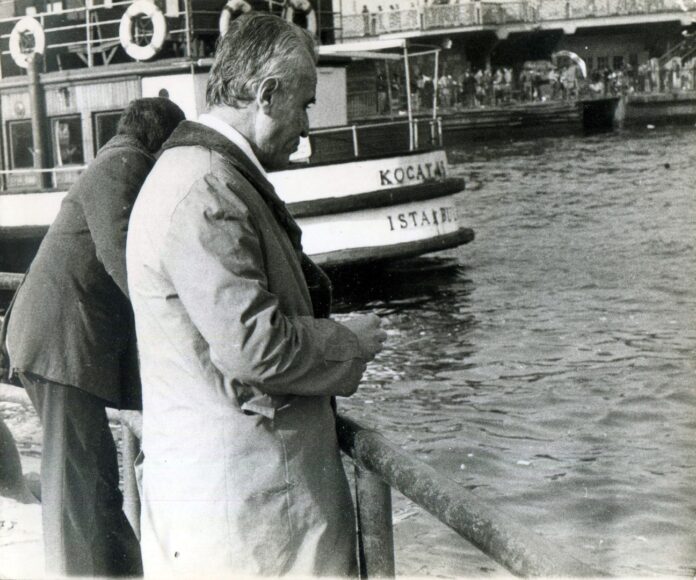Until the 1450s, the main centers in Turkish Thought were Orkhon Valley, Transoxiana Basin and Great Khorasan Basin, the last one covering the geography from Iran to North India. These three regions have shaped Turkish Thought.
Monographic evaluations of the Orkhon Inscriptions in terms of Scientific Disciplines have not been made yet. The basic concepts and articles of our Constitution (Tonyukuk Inscription) 500 years before the first Constitution (Magtna Carta) of 1215 in the West were recorded with these stones.
After inheriting 3 Inscriptions (Tonyukuk, Bilge Kağan, Kültigin) from the Göktürks, much more monuments from the Karakhanids have survived.
• Kutadgu Bilig (Sacred Knowledge) by Yusuf Has Hacib,
• Kaşgarlı Mahmud’s Divânu Lügati’t-Türk (Great Turkish Dictionary),
• History-i Kashgar (History of Kashgar) by Imam-i Abu’l-Futuh Abdulgafur,
• Ahmet Yesevi’s Divan-i Wisdom,
• Edip Ahmet Yukneki’s Atabet’ül Hakayık (The Threshold of Truths)
His works are the most important works of this period. In addition, some translations of the Qur’an written during the Karakhanid period and we have, and Târîh-i Türkistan and Hıtây (now lost) presented by Mecdüddin Mehmed of Kaşgar to İbrahim Han and Mücmilü’t-Tevârih ve’l-Kısâs, whose author is unknown His works [books] are also important works published in this period.
The works produced by Biruni and Seljuks, especially in Khorasan, Baghdad and Anatolia, during the Ghaznavid period, are the masterpieces of the 500-year enlightenment period (700-1200).
Corpus of Turkish Thinkers/ Triangle Pattern: 3K
• Chronology; Time, Date
• Resources; Mind
• Cartography; Ground, Geography
Turkish Mind / Founding Works:
The repertoire of the works revealed by the Turkish mind and words stretching from east to west along the 41st latitude is a treasure and should be internalized and form a basis for our present and future.
“If the common denominator of a broad public opinion seeking an answer to the question of what are the classics of Turkish literature is explained with 20th century literature, does it result that we are rootless and generationless? should be.
We are glad to be able to wash our faces with Yunus Emre Divanı, but the rest is obviously indecision. What is it, Dede Korkut Book, Travelogue or Fuzuli Divan? There are them too, but we do not dare to ask which one we have internalized enough to keep it by our side. Reading the articles in Eco’s book ‘On Literature’ is quite annoying, while still helping to get my thoughts out of ignorance. Why don’t we have a mind to put next to what he wrote?”
Where to go without finding our resources, Semih Gümüş, 30.12.2016 (kitap.radikal.com.tr)
Our Thought Journey
Our philosopher’s journey, which started with Bilge Tonyukuk (d.646), ended with the death of Cemil Meriç in 1987; Asia, which has been examined specifically for China and India, is still approached with a distance. However, the messages of our first author, Bilge Tonyukuk, and Cemil Meriç, who worked in India for four years and wrote his book, are still waiting to be embraced. In this case, both thinkers are the main pillars of start/end. Therefore, they must be in the position of intellectual main centers.
While the mission of Yunus Emre Institute is to teach Turkish to foreigners, Bilge Tonyukuk Institute can adopt our founding tradition of thought by establishing the Cemil Meriç Institute. It assumes the function undertaken by the Orient Oriental Institutes of the German, British and French; takes root in eastern and western thoughts.
Turkish Thinkers Bulgaria (leventagaoglu.blogspot)
Turkish Thinkers Russia (leventagaoglu.blogspot)
Ebu Hanife : The First Muslim Turkish Thinker
Tonyukuk: The First Turkish Thinker
You should see Ebu Hanife and Tonyukuk together. He who does not see is blind.
While everyone who is Muslim in the Balkans defines himself as TURKISH, everyone who is OTTOMAN in the Americas is referred to as EL TURCO!
Thought Centers
Rumelia
• Istanbul
• Skopje
• Sarajevo
• Prizren
• Plovdiv
• Shumen
• Budapest
• Belgrade
Anatolia
• Bursa
• Konya
• Amasya
• Sivas
• Kayseri
• Erzurum
Caucasus (Caspian)
• Tabriz
• Baku
Turkestan
• Transoxiana
• Samarkand
• Bukhara
• Kashgar
This shallowness will gradually begin to be overcome, and we will begin to keep our root culture alive in Turkestan by going deeper. In recent years, interest in the Ottoman Empire and history has started to increase gradually. It is not too long when this interest will extend from Anatolia and the Balkans to the depths of Asia.





















